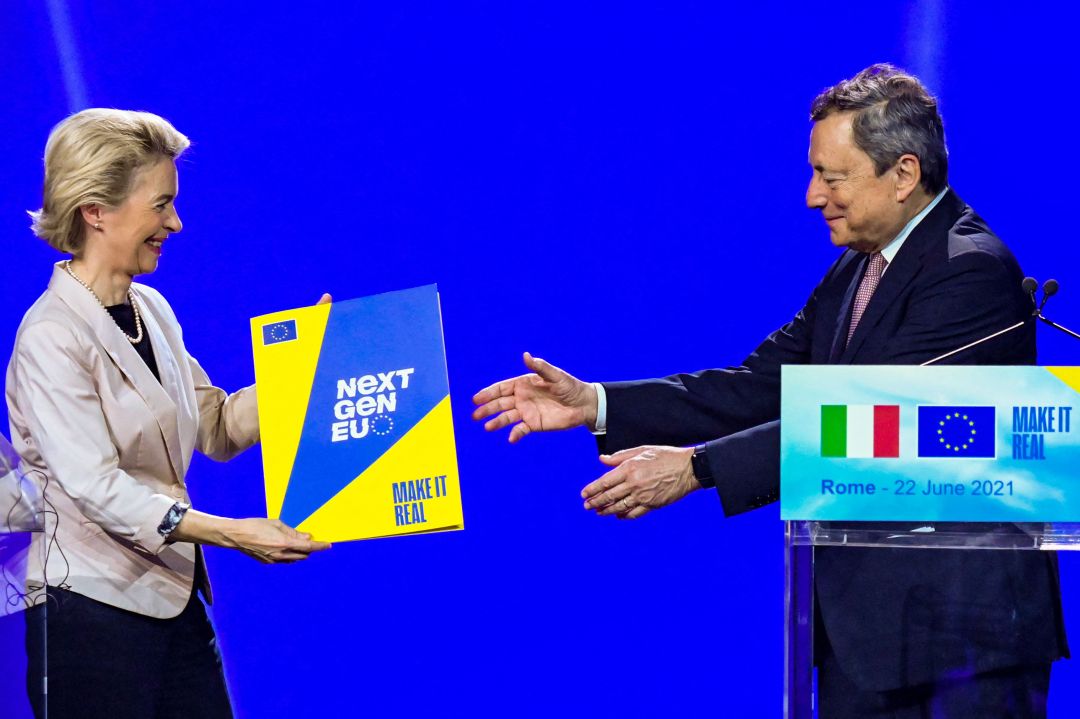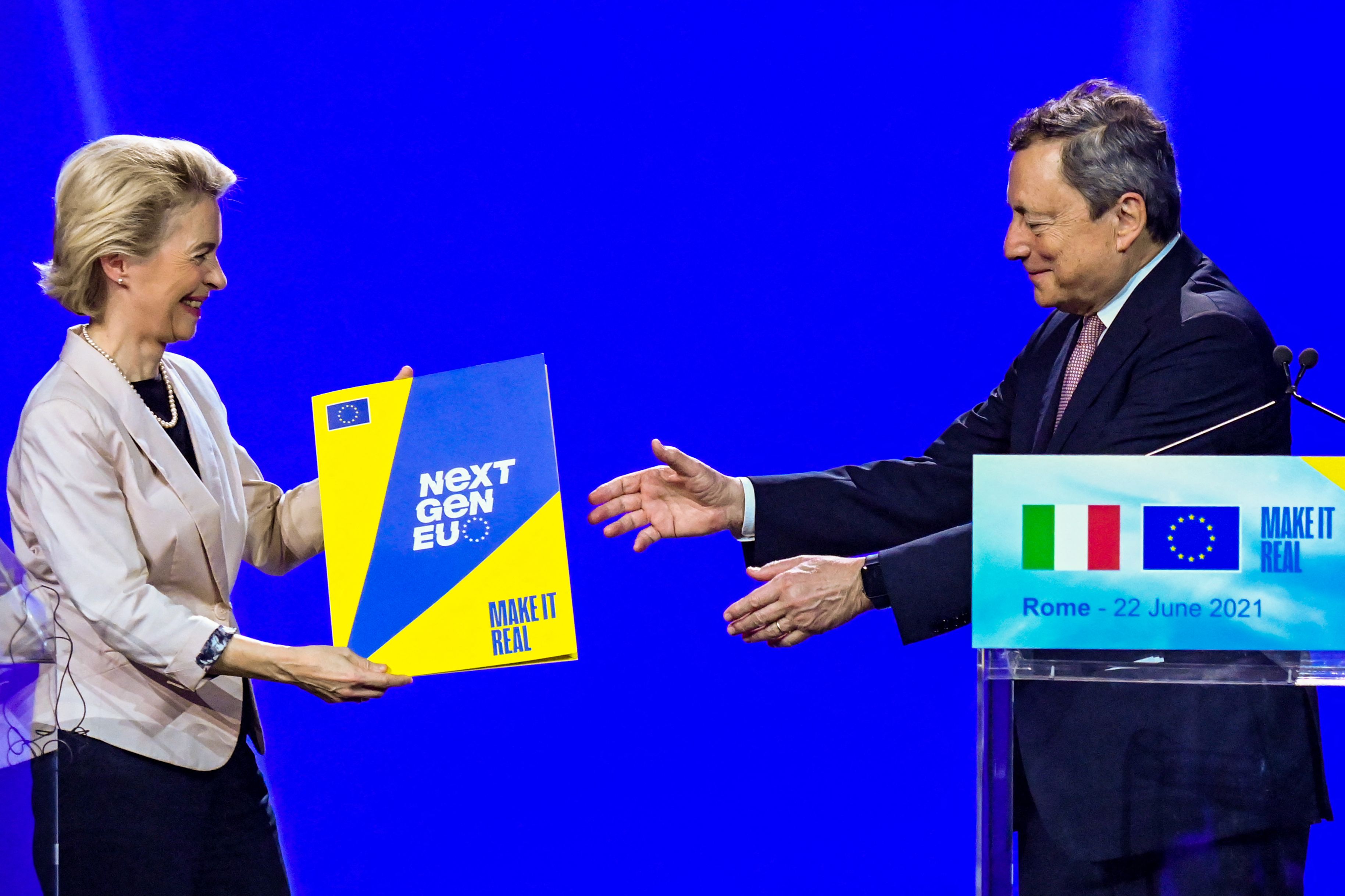There’s been a lot of hype around the green light given by the European Commission yesterday to Italy’s recovery plan. But let’s break it down: the final headline numbers are €68.9 billion in EU grants by the year 2026 and €123 billion in loans. If you take the grant component, and divide it over the six-year duration, you arrive at an average of 0.6-0.7 per cent of Italy’s 2019 GDP each year.
It is front-loaded, and it’s by no means a modest sum. What’s harder to accept however, is folding in the loan component to arrive at some giant fake headline number.
The whole point of this exercise is not to produce a classic fiscal boost, but fiscally-assisted structural reforms. Anyone who has ever dealt with structural reforms knows that they are easy to write down on paper, difficult to legislate, and extremely difficult to implement on the ground.
The reform programme Italy has committed to is absolutely massive. Corriere della Sera has calculated that there are 190 measures, 58 reforms, and 132 investments, all carefully costed and timed.
Next month, the EU Council will grant Italy an upfront tranche of pre-funding — €9 billion in grants and €15.9 billion in loans. Later in the year there will be another tranche of €11.5 billion in grants and €12.6 billion in loans. Corriere and other media organisations in Europe tend to add these numbers together. But it’s better to keep grants and loans separate. This gives a total of €20.5 billion in grants and €28.5 billion in loans. This makes the grants component about 1.1 per cent of 2019 GDP, which is a fiscally relevant number.
To get this money, Italy committed to a reform of the public administration by December, as well as the reform of the justice system, a new insolvency law, a reform of public procurement, and a new incentive system for energy efficiency. And that’s only 2021. For 2022, Italy commits itself to a whole new framework for energy efficiency, changes to how teachers are recruited, the digitalisation of the school system, and measures to promote start-up and venture capital to help fund green investments. Most of the reforms in the programme are earmarked for the first two years.
Mario Draghi likely has until next January or February as leader of a national unity coalition — or technical government as it is known in Italy — before he ascends to the Quirinale Palace to succeed Sergio Mattarella as Italy’s president. With the way the polls are trending, it appears unlikely that the post-Draghi world will be particularly reform-friendly. So it’s all being squeezed into a very short period of time.
The reforms in 2021 will be difficult — reform of public administration and the legal system especially. But as with all reforms, the devil lies in the details, and in particular in the implementation. You can reform the judiciary, but you can’t guarantee that the judges will become more efficient and transparent. Structural reforms are not an exercise of turning a few legislative screws, and then pop the sparkling wine. It is the application of an irresistible force to an immovable object. This isn’t done in six months.
What Italy can do in six months, however, is take the first step, if you are serious (or pretend that you are solving the problem – if you are not). Over the years, there has been a noticeable gap in EU programmes between pretence and delivery. The test of this entire exercise does not lie in creating a long to-do-list, but in the productivity growth that it generates. If all these measures were implemented, there should be large and persistent effects on productivity growth from 2023 onwards.
This exercise may succeed on paper but fail in practice, as future Italian parliaments find ways to neutralise any reform radicalism. Successful reforms are bottom-up, not top-down. What is happening is that the EU is using a short time window for a technical government to produce the most political reform agenda in a hundred years. What could possibly go wrong?
This article first appeared in the Eurointelligence newsletter.








Comments